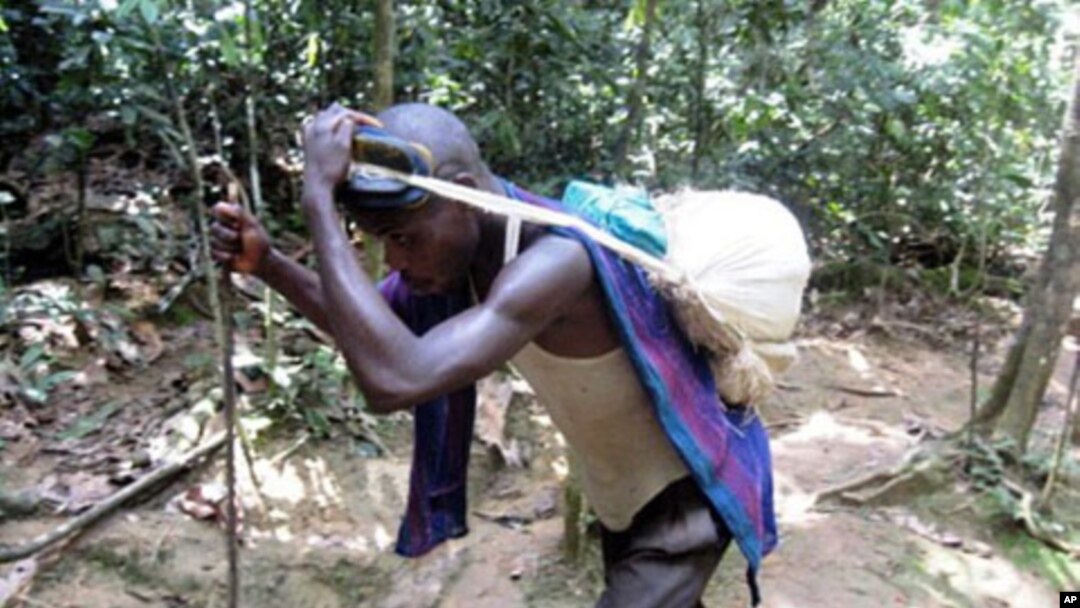A delay in a U.S. law to combat Congo's so-called conflict minerals has sharpened divisions between advocates of the legislation and those who will need to comply, namely manufacturers and the high-tech industry.
A Washington event on Congo's conflict minerals was held Tuesday evening, a few weeks after the U.S. Securities and Exchange Commission postponed the adoption of rules for the law that was passed and signed last year, but still not implemented.
Corinna Gilfillan, from the advocacy group Global Witness, was one of many in attendance who shared her disappointment.
"Any delay or phase-in of the law would seriously undermine the aim of the law which is to create greater transparency and accountability over the trade in conflict minerals and therefore help reduce the violence that is being driven by these minerals," said Gilfillan.
The aim of the law is to force thousands of companies that report to the Securities and Exchange Commission and obtain minerals from the Democratic Republic of Congo and nine neighboring countries to reveal the sources of tin, tungsten, tantalum and gold they use.
This month, without giving any reason, the SEC postponed announcement of the new rules to between August and December.
A representative of the U.S. National Association of Manufacturers, Stephen Jacobs, called the delay awkward. He also called for a transitional phase of the law and less rigorous demands.
"The SEC should create a category such as indeterminate origin as a temporary, let me emphasize temporary, measure for products manufactured or produced with conflict minerals that issuers are unable in the first years of their program, despite their best efforts, to determine the origin," said Jacobs.
Gilfillan and other transparency advocates called this request an attempt to, in their words, gut the law. One sector that is being targeted is the hi-tech industry, because of the importance of Congo's tantalum in making cellphones, laptops and other popular products.
But Rick Goss, from the U.S. Information Technology Industry Council, called the law a sledgehammer, rather than a scalpel. He said it could create a de-facto embargo against mineral products from nearly half of Africa.
"I may not know where all the sourcing is for my products because it goes so far down the supply pyramid," said Goss. "It is unclear once it gets to the smelters and it is refined exactly where the source was. There is no test to determine where the minerals came from, so the only way I can honestly say to the SEC, to the public, to my stakeholders, that I am conflict-free is not to source [get minerals] from anybody who sources from anything that sources from anyone who touches [has anything to do with] Central Africa."
One panelist in favor of the law, Brad Brooks-Rubin, from the U.S. State Department, said the long-term motives of disclosing information about Congo's minerals are a way for many Americans, from the U.S. government to manufacturers and consumers, to try to help end the ongoing conflict in the country's lawless east.
"Being a part of a formalized system that really benefits the Congo, I think there is an inordinate amount of reputational gain that will be had to all of us for being a part of that. I think the question is what risks people are made to bear along the way of getting there," said Brooks-Rubin.
But a Congolese scholar who was on the panel, Mvemba Phezo Dizolele, said he thinks all this U.S. attention to help Congo is misguided.
"The problem in Congo is not the conflict minerals. The problem in Congo is lack of governance, lack of leadership," said Dizolele. "This is a political crisis, so if we ignore the political crisis, we cannot solve all the conflict mineral problems. Congo will not get on its feet."
New legislative and presidential elections are due in the DRC before the end of the year. But multi-party elections in 2006 failed to help end the violence in the country's eastern regions, where rival armed groups compete to control mining areas.
Delay in US Law to Combat Africa's Conflict Minerals Sharpens Divisions

A Congolese man carries a load of mineral chips harvested from inside a deep cassiterite mine located west of the eastern Congolese town of Goma in the north Kivu region (File 2010)

